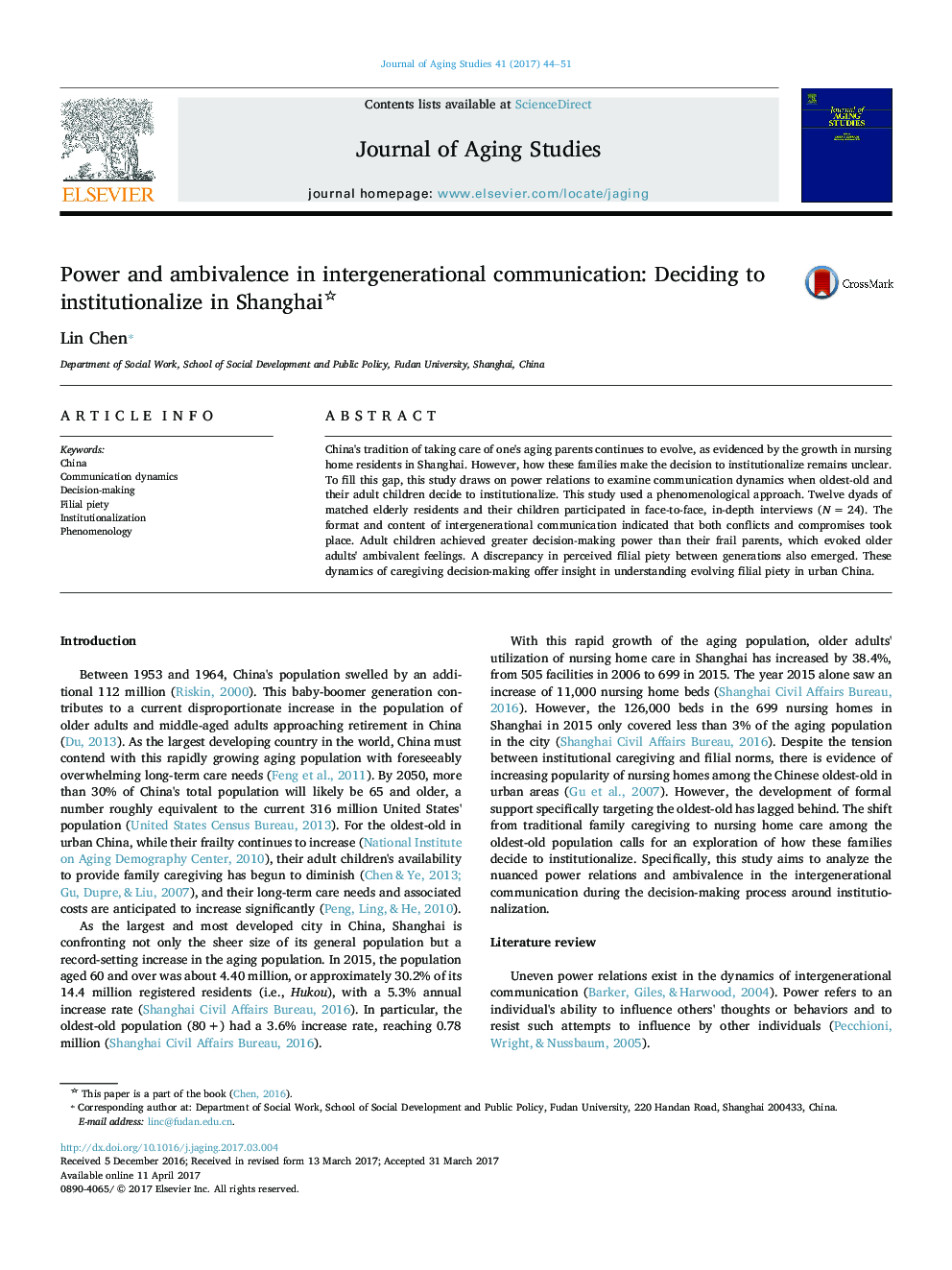| کد مقاله | کد نشریه | سال انتشار | مقاله انگلیسی | نسخه تمام متن |
|---|---|---|---|---|
| 5121642 | 1486760 | 2017 | 8 صفحه PDF | دانلود رایگان |
- Intergenerational power relations became uneven when deciding to institutionalize.
- Conflicts and compromises simultaneously existed in the communication dynamics.
- Older adults experienced intergenerational ambivalence.
- Adult children faced a filial paradox.
- Both generations' lifeworld transformed during the decision-making process.
China's tradition of taking care of one's aging parents continues to evolve, as evidenced by the growth in nursing home residents in Shanghai. However, how these families make the decision to institutionalize remains unclear. To fill this gap, this study draws on power relations to examine communication dynamics when oldest-old and their adult children decide to institutionalize. This study used a phenomenological approach. Twelve dyads of matched elderly residents and their children participated in face-to-face, in-depth interviews (NÂ =Â 24). The format and content of intergenerational communication indicated that both conflicts and compromises took place. Adult children achieved greater decision-making power than their frail parents, which evoked older adults' ambivalent feelings. A discrepancy in perceived filial piety between generations also emerged. These dynamics of caregiving decision-making offer insight in understanding evolving filial piety in urban China.
Journal: Journal of Aging Studies - Volume 41, April 2017, Pages 44-51
